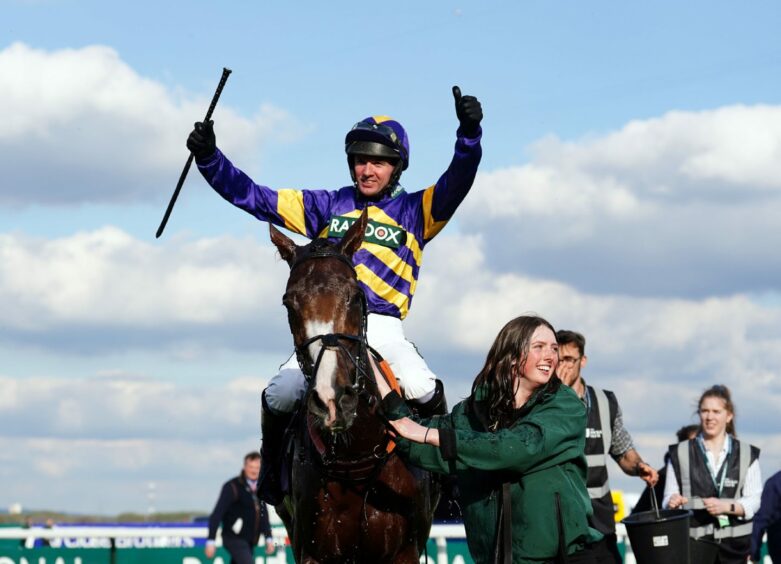
As soon as my little boy could walk, he loved nothing more then a visit to the horses who were stabled close to our house.
Some of these gorgeous creatures would dip their heads low so he could lay his pudgy hands on their smooth necks, his little fingers gently caressing velvety noses.
The welfare of your average horse is seen in a very different light to a racehorse, as discovered when I spoke to numerous experts.
They argue that the sport comes under intense public scrutiny, without your average spectator understanding what takes place behind the scenes.
Horse racing has faced a fair amount of controversy in recent weeks, with 25 people arrested following protests at the Scottish Grand National last weekend.
Animal Rising claimed dozens of supporters made it on to the track at Ayr, and the English Grand National was also delayed by more than 15 minutes due to protestors attempting to lock themselves to fences.
Three horses died in total, including Hill Sixteen who fell at the first fence.
His Scottish trainer went on to say that the delay contributed to his death.
Lucinda Russell was also left devastated, after former Scottish Grand National winner Mighty Thunder suffered an aneurysm following Saturday’s Scottish Grand National.
Taking to social media, she said: “Losing any horse is hard but it is excruciatingly painful to lose one who was loved from the minute that he walked into the yard seven years ago and who took us all on such a journey including the Scottish Grand National and Edinburgh National in 2021.”
From those who have dedicated their life to a career within the horse-racing industry, to the belief that horses shouldn’t race at all, we’ve taken a look behind the scenes to find out more.
Lucinda Russell OBE: ‘Love of the horse is at the centre of everything’
Even if you’ve never placed a bet, the chances are you’ll have heard of Lucinda Russell.
She is at the helm of Scotland’s leading hunt yard, and Arlary House – which can be found in Kinross – is the pinnacle within the horse-racing world this side of the border.
Lucinda found the time to speak to us mere days before the Scottish Grand National took place, and believes that at heart, she is still the little girl obsessed with horses.
“It all started because I was the child who loves horses, and that is the one thing that has continued throughout my whole career,” she said.
“For me it has always stemmed from a love of horses, I am really lucky that I can use the skills that I have learned to run a business which includes horses.
“At the end of the day, the best bit is being around horses.”
Lucinda can recall her mum’s love of animals, although she was the first one in the family to get a passion for horses.
“My parents were very good, they embraced my love of horses eventually and they were never pushy,” she said.
“I think you have to learn about the horses, first and foremost.
“You have to understand them and know how to read them.
“Just as you train an athlete in sport, it’s partly about psychology which I studied at university.
“That has actually really helped me.”
What does an average day look like for a race horse trainer, and those who work in the yard?
There is one constant which Lucinda has had no choice but to stick with throughout her career – and that’s an early start.
“I start at 5.30am, and go and feed all the horses in my yard,” she said.
“All the horses are checked to make sure they are OK, and if they’ve eaten.
“Food is one of the most important things; if a horse is in pain, very often the first sign can be that they don’t eat.
“Staff come in around 7am to muck out, then at 7.30 they start riding.
“The riders we have are very skilled and I am proud of that.”
More exercising takes place between 10am and 1pm, where Lucinda watches the horses on the gallops and addresses any physical or mental issues.
The horses are then checked over again, brushed and turned out to the paddock individually.
“They get a couple of kilograms of carrots as an extra treat; the whole routine takes place seven days a week,” said Lucinda.
“There have been big changes in the diagnostic world, we can pick up injuries much earlier.
“I think those on the outside should come to the inside; they’d realise how high the standards of care are in racing and how regulated we are.
“Our standards far exceed that of your normal horse owner.”
It cannot be easy losing a horse, be that during a race or afterwards – such was the case of Mighty Thunder who died after reaching the stable, post event.
But Lucinda has clearly found her calling, given that she trained the 2023 winner of Aintree, Corach Rambler.
“What do I love about horses?” she said.
“I could have told you that when I was eight years old.
“It’s the companionship, their spirit and the love that they give.”
Alexander Thorne: ‘We should see protests as a positive’
The tender age of 27 may seem a little young to retire, but the fiercely competitive world of horse racing does not stand still.
Alexander Thorne bears no grudges to the eager jockeys coming up behind him, after a particularly nasty injury brought an end to his career
Having spent his childhood in the small Highland village of Kiltarlity, just outside Beauly in Inverness, Alexander was a rising star who Lucinda Russell took under her wing, before he headed south for further opportunities.
He went on to ride for Alan King and Paul Nicholls OBE.
Alexander, whose family is still based in the Highlands, believes there cannot be an “us and them” approached when it comes to the conversation between protestors and the racing industry.
“I was very energetic and hyperactive as a child; my parents tried to get me into as many sports as possible,” he said.
“My mum took me along to her own riding lessons, and it just went from there.
“I got a Welsh pony called Jo – she is still going strong today.”
Alexander believes that racing will always come second to his love of horses, and there have been plenty of favourites throughout his career.
“When I was with Lucinda Russell, there was a horse called Deepsand,” he said.
“He had a lot of character, he was a very particular horse and he knew his own mind.
“I won with him in my first season and that was quite special.
“It’s hard to explain what precisely the love is for horses, I think it’s the fact that you have to be at your best all of the time.
“The relationship you have with them requires you to be at that standard, you can’t just turn around to a horse and say you are having a bad day.
“They get the highest care of any animal I know, and it’s such a rewarding job.
“Horses are not machines, they are living beings.
“You can see your efforts come to fruition, and you can also be disappointed.
“Horses are very forgiving and willing, they are just like people with different personalities and needs.”
Alexander paralysed his left shoulder after falling on to a hurdle during a race, and spent 13 months recovering.
“It’s an ultra-competitive industry, you cannot give any ground away,” he said.
“It took four/five years for me to build momentum, so I had a choice to make.”
Alexander believes people may not be aware of the dedication required, with early starts and much of the time spent driving between different yards and races.
“I think people get the idea that it’s a luxurious sport,” he said.
“It’s very easy to criticise because it is such a public sport; I am not going to try and defend the fact that unfortunately incidents do happen.
“There’s a lack of understanding though, this ideology that you should put all these horses in a field and let them roam free.
“Their life expectancy would be much shorter and the death rate would be higher.
“I’m not going to start excusing things, but the amount of ponies you drive past in the field where you think, wow they look thin.
“You don’t see a race horse ending up with the RSPCA.”
As to the recent controversies surrounding protests, Alexander is hopeful that there’s a conversation to be had.
“It can’t be us against them, we have to try and see it in a positive way,” he said
“They may not realise that the horses at the National have a higher level of care than any other horse in the country.
“But we at least have people making sure we are holding that high standard in the first place.”
Gemma Kennedy: ‘The media focuses on the negative’
Gemma, who comes from Culloden, left the Highlands behind to pursue a career in the race horse industry.
Having worked her way up from stable staff to work rider under Lucinda Russell, she is currently taking a break from riding as she is expecting her first child.
Gemma believes that there are plenty of misconceptions about the industry, which she is keen to disparage.
This includes the belief that race horses are disposed of if their career comes to an end, when they are in fact given to highly vetted owners on long-term loan.
“If you were running a marathon you’d do training, and it’s the same for horses,” said Gemma.
“They have their holidays in the summer where for at least two months they just get to be a horse.
“They get fat and fluffy, and do all the things that make them happy.”
From having her own pony as a child, Gemma’s love of horses only grew, and the role of work rider means informing trainers how a horse is getting on.
“Having a job where you can ride race horses all day, it’s so rewarding,” she said.
“It’s a lifestyle, it doesn’t leave much energy for anything else.
“On race day itself, there’s the atmosphere out front, but behind the scenes we’re all working.
“The whole race is timed with the horse in mind; they are walked around 40 minutes before the race and then they enter the paddock.
“I think the media only focuses on the negative, when accidents with horses also happen outside of races.
“It’s the world’s best-regulated animal activity, and the veterinary checks prior to racing are really intense.
“I would welcome anyone to visit a yard and see how happy the horses are.”
For Gemma, horses can offer some important life lessons.
“Horses do not judge you, they are not thinking about tomorrow or yesterday,” she said.
“They are living in the now.”
Bruce and Carron Wymer: ‘Knowledge is power’
Retired couple Bruce and Carron Wymer never set out to own race horses.
Although they still have a home in Ellon, they now spend much of their time away thanks to the success of Ahoy Senor who has been described as a national hunt sensation.
A rising star on the racing circuit, their pride and joy is treated to water treadmills and massages under Lucinda Russell.
“I’ve always said that if I come back, I want to come back as a race horse,” said Carron.
The couple originally brought a share in a race horse three-and-a-half years ago, as a fitting tribute to Carron’s father who had saved up his state pension.
The pair have well and truly got the bug after experiencing the excitement of racing, and unexpected wins.
“I think there’s a misconception that race horse owners are very wealthy people, when you can be involved at any level,” said Bruce.
“It’s an easy sport to criticise if you haven’t looked into it, or you haven’t had the opportunity.
“You only have to look at the work that goes into these horses, who are fantastically well looked after.”
Orla Coghlan, Animal Rising: ‘This isn’t a welfare question’
Animal Rising, the group behind the most recent protests, has said it is in the process of arranging visits to yards.
Its stance, however, remains resolute.
“Whilst there is no doubt that the vast majority of trainers and owners love race horses and try to give them high welfare and care, there is the glaring issue that ultimately the sole purpose these animals are bred and treated well is for racing,” said Orla Coghlan, a spokesperson for the group.
“Animal Rising is already in discussions with trainers and owners to visit stables and see horses, as we fundamentally believe all of us want what’s best for the horses – and just differ on conclusions.
“What we want to see is a rewilded Britain, where natural habitats thrive for all kinds of animals – horses included.
“We know this isn’t a change that can or will happen overnight, but we can begin the transition away from using animals now.”
The group believes that funding sanctuaries for race horses may be a possibility.
“The first step is to stop breeding horses purely for our use.
“Secondly, we need to be looking at better use of profit from the horse racing industry – particularly gambling.
“The use of racehorses has provided hundreds of millions of pounds to the bookies and it would barely dent that for a windfall levy to be introduced to be able to fund the happy retirement of racehorses into sanctuaries.”
As for their plans moving forward, more protests could be on the cards.
“It’s undeniable that Animal Rising has caused the discussion around horseracing, and how we use all animals, to climb the agenda.
“Just this week a sponsor pulled its support from the Grand National, whilst a YouGov poll shows a clear majority think the race is cruel.
We’ll continue our attempts to stop harm from coming to horses in racing, but will also be openly rescuing animals from factory farms this year – all aiming to centre the need to rebuild our connection to other animals and the natural world.
“We are engaging in dialogue with multiple stables with a view to visiting and having these valuable discussions.
“We are not a welfare group, we are concerned with the underlying use and exploitation of animals across industries like racing, animal testing, and food.
“Our primary solution is a safe and secure plant-based food system and mass rewilding. We know this is the key solution to the climate and nature crises.
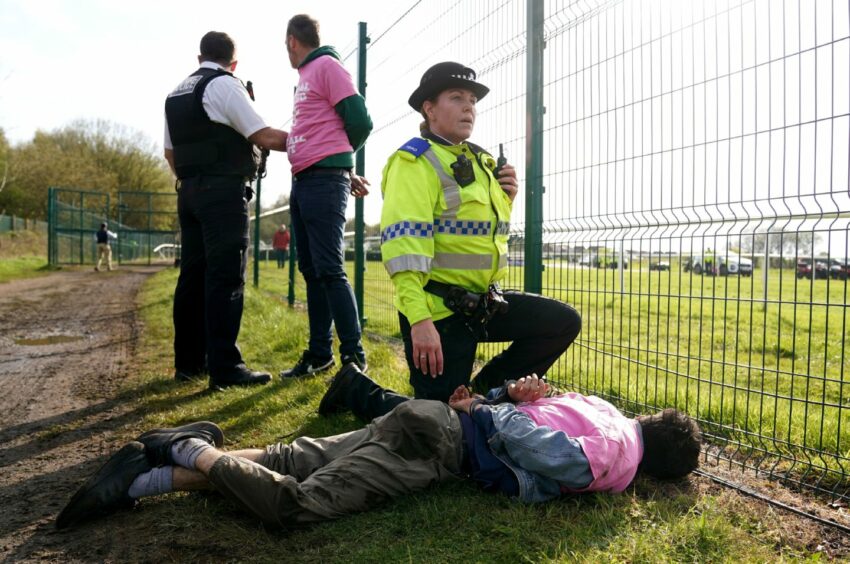
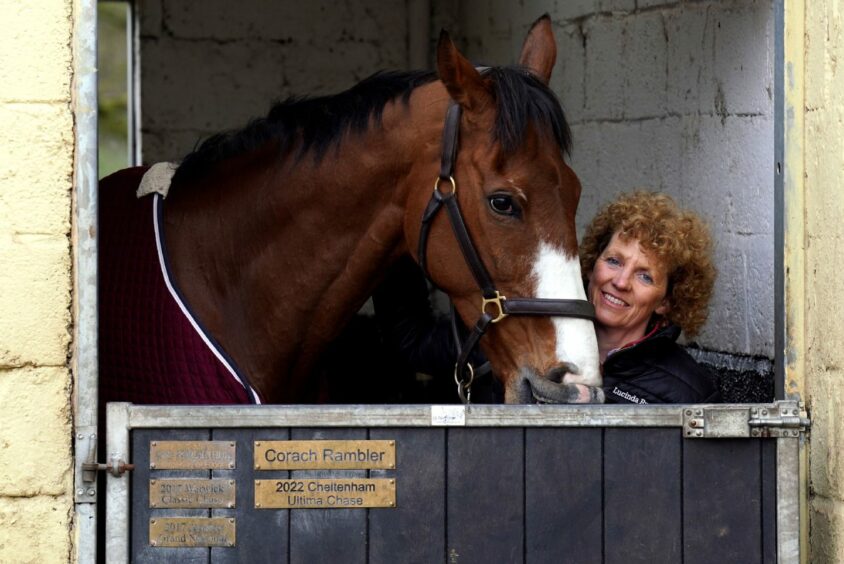
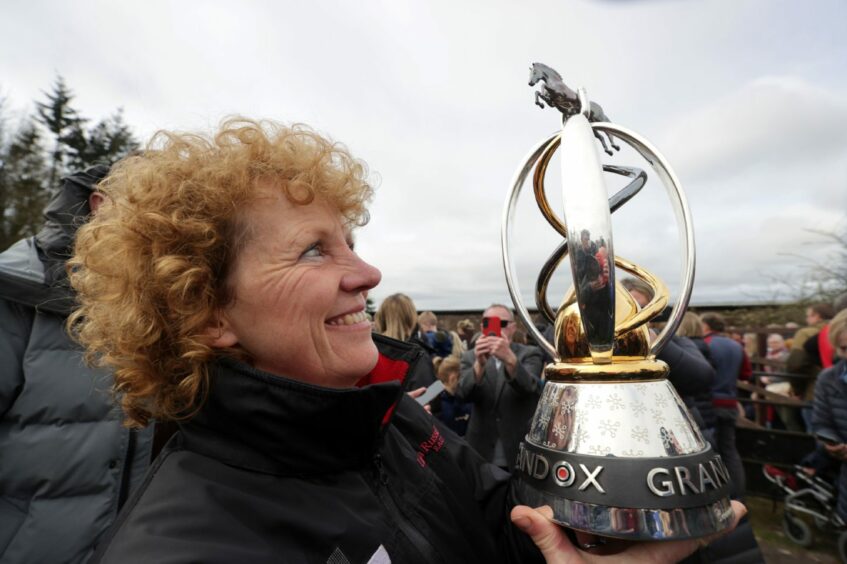


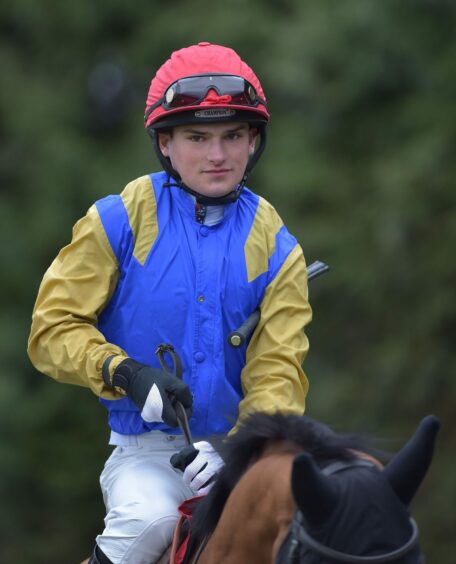
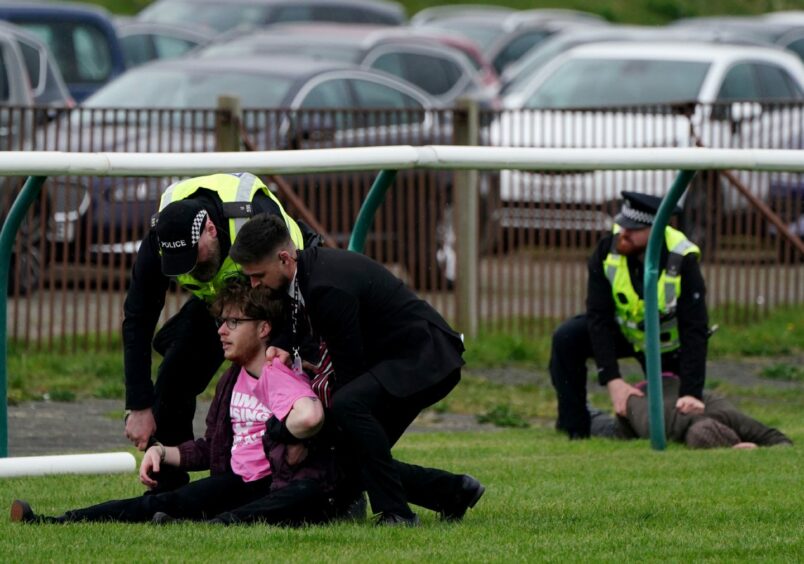


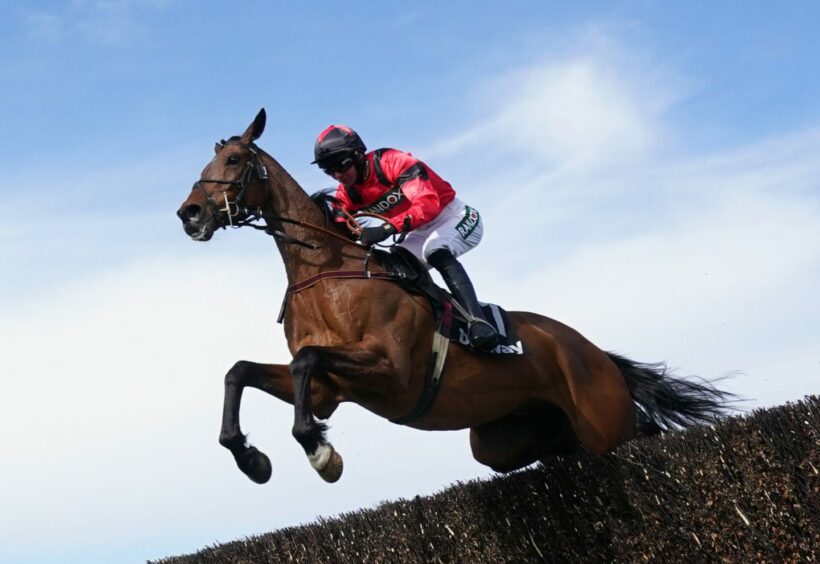
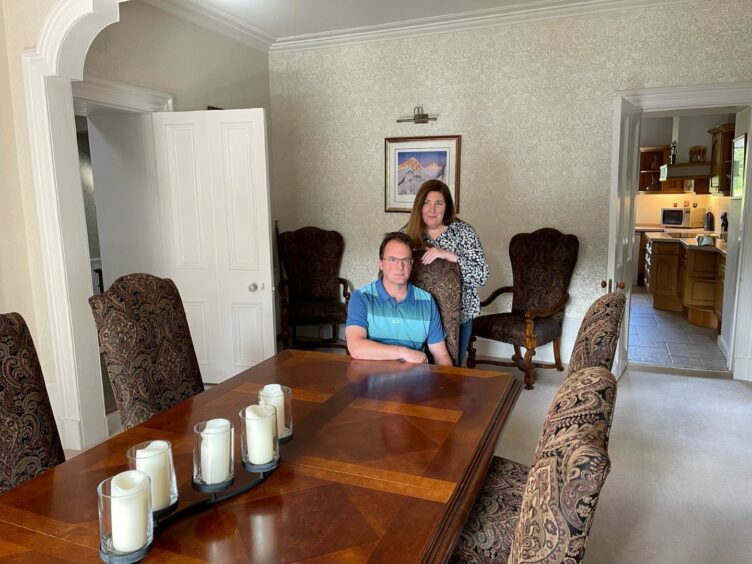

Conversation